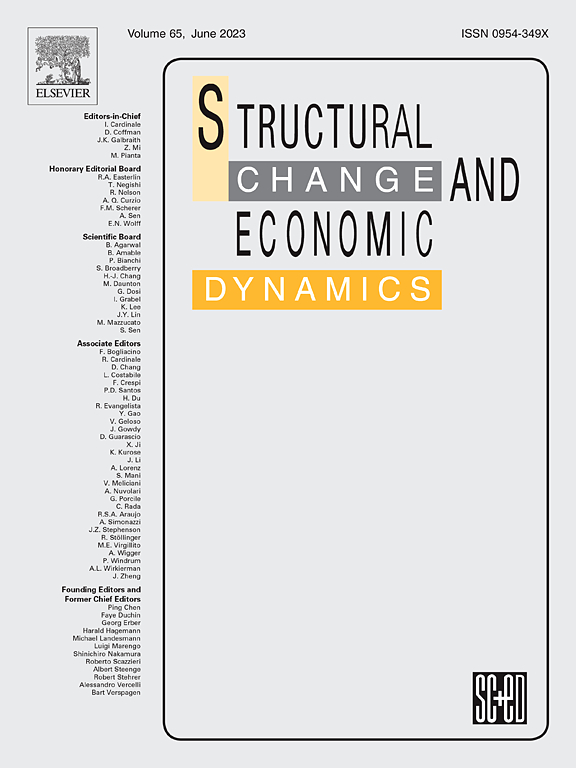Comparing the earned income tax credit and universal basic income in a heterogeneous agent model
IF 5
2区 经济学
Q1 ECONOMICS
引用次数: 0
Abstract
This study quantitatively evaluates two redistributive policies: the earned income tax credit (EITC) and universal basic income (UBI). We construct a continuous time heterogeneous agent model calibrated to the US economy and compare the expansion of the EITC with the introduction of UBI. Both policy changes encourage low-income households’ labor force participation and improve social welfare measured by consumption equivalents. Meanwhile, output declines as the policies discourage precautionary savings and reduce capital stock. Furthermore, they may widen wealth inequality because redistribution lowers income dispersion, and the marginal increase in the value of holding additional assets flattens out, as do consumption and savings.
求助全文
约1分钟内获得全文
求助全文
来源期刊

Structural Change and Economic Dynamics
ECONOMICS-
CiteScore
9.60
自引率
4.90%
发文量
159
期刊介绍:
Structural Change and Economic Dynamics publishes articles about theoretical, applied and methodological aspects of structural change in economic systems. The journal publishes work analysing dynamics and structural breaks in economic, technological, behavioural and institutional patterns.
 求助内容:
求助内容: 应助结果提醒方式:
应助结果提醒方式:


